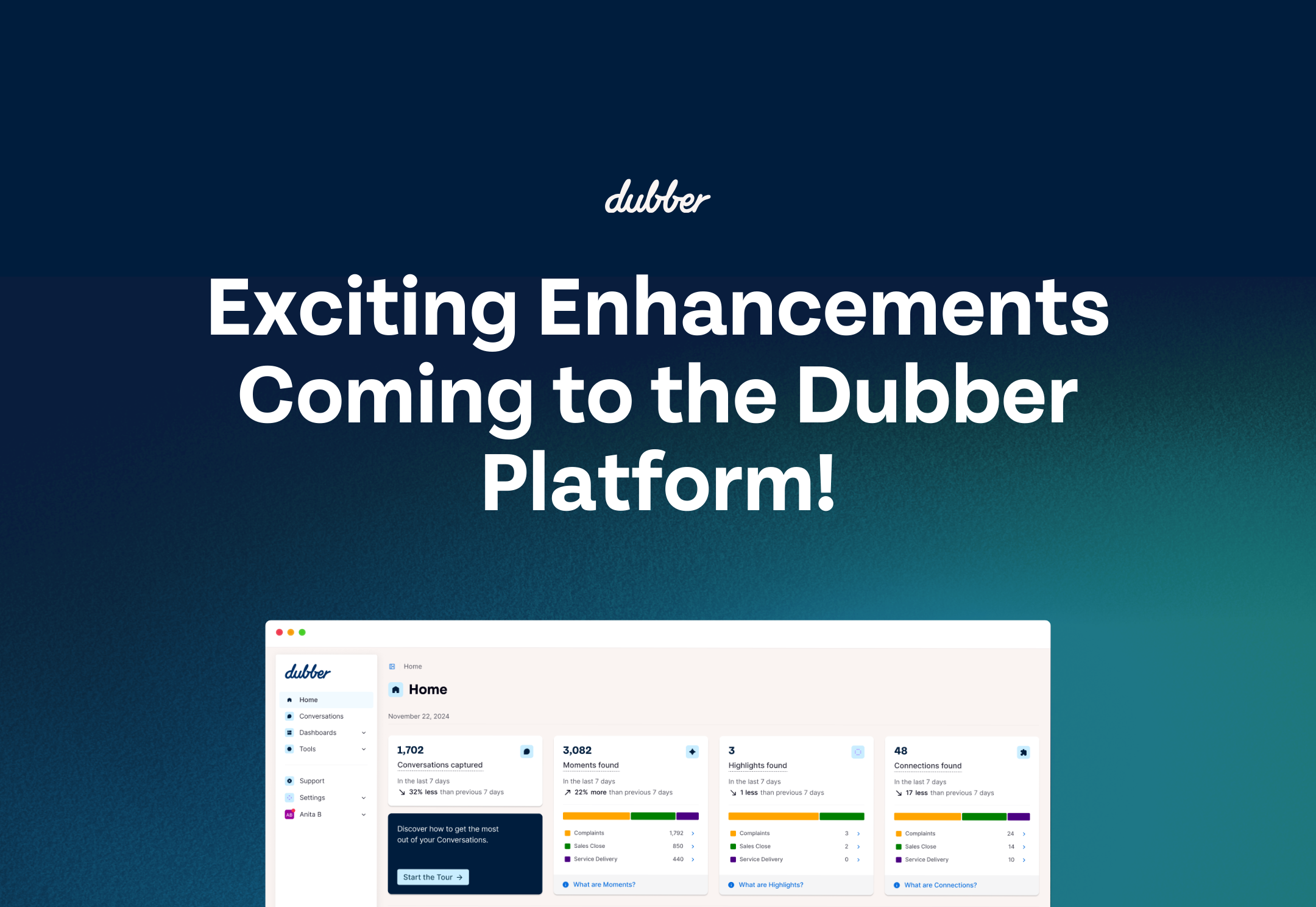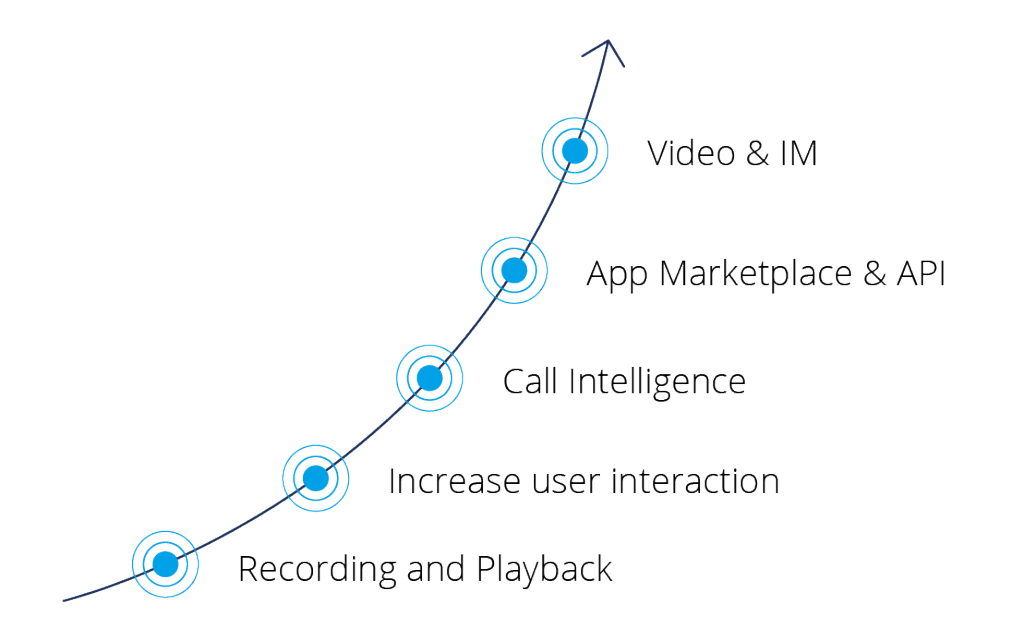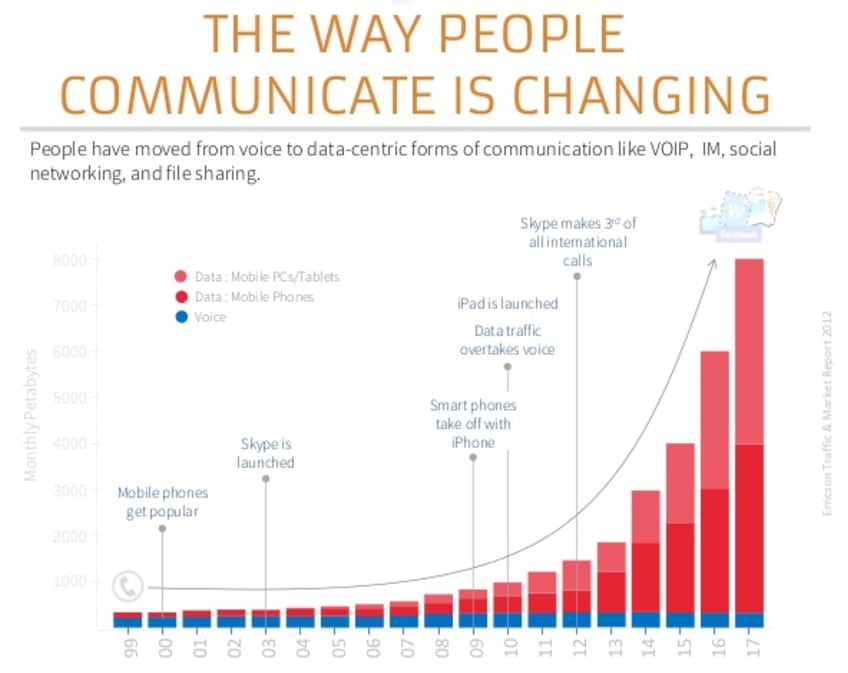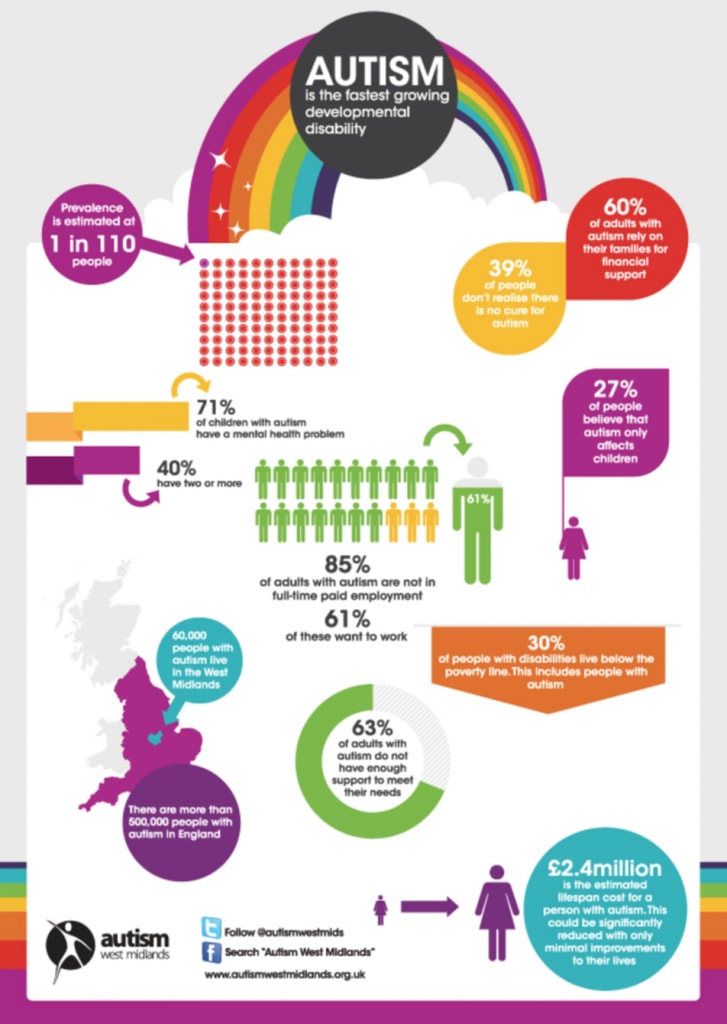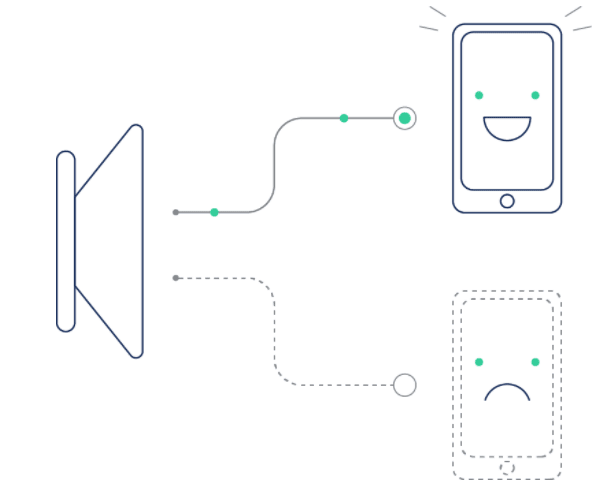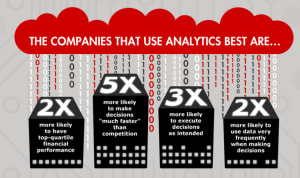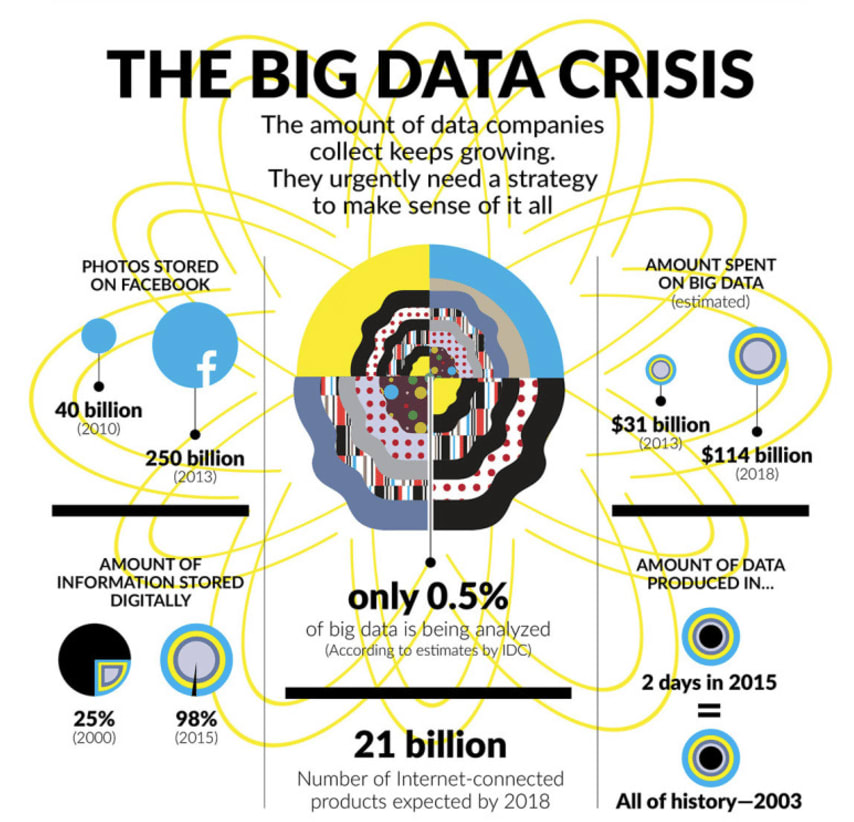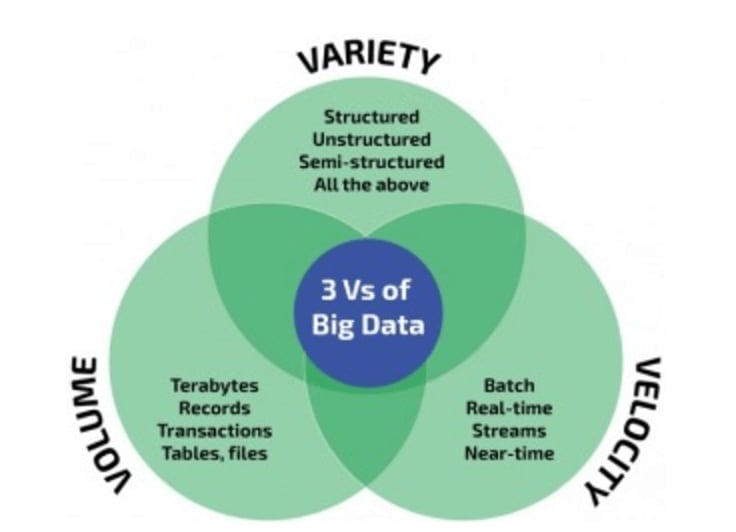
The Telecoms Industry is currently experiencing a time of drastic change, as traditional communications solutions decrease and data revenues grow. As a consequence, many companies within the industry are witnessing a decline in Average Revenue Per User (ARPU) – usually an accurate indicator of business growth and profits. To reverse this, telcos and other companies in the industry must begin to monitor customer spending, and consider altering their services to cater to the changes.
It is commonly stated that 90% of start-up businesses fail within the first 10 years – although Software as a Service (SaaS) business models are generally more likely to succeed. SaaS models offer subscription plans that are often more appealing to customers because they are more affordable, and so are also more available to users with smaller budgets. Other business models often have large upfront costs and struggle to offer the latest updates to customers because upgrading is more time consuming, expensive and difficult. Ultimately, the ability to offer the newest solutions at more affordable prices will attract more customers and give a head start on revenue for SaaS businesses.
Yet, the 90% failure rate does still apply to many SaaS businesses, and taking steps to protect the longevity of your business is therefore vital. Perhaps the most important step for businesses providing a service, is improving customer satisfaction. The importance of customer service is clear, and is something we have discussed at length in other blog posts. The ability to satisfy customers is a true business advantage, often separating the winners from the losers, and the first step to satisfied customers is getting to know their needs. There are many ways to go about this, but paying attention to your ARPU is perhaps the most important.
Some call ARPU a “vanity metric”, and whilst it is true that it is far from the be all and end all for businesses, it can indeed provide significant insight that helps to identify customer trends – if correctly managed and analysed. Vitally, this insight can then be used to design smart business solutions. The business advantages of tracking your ARPU include:
- Deducing the financial health of your business
- Validating any investment in products
- Validating any investment in marketing
The most important benefit is the insight it can provide into both the short-term and long-term projected health of a business. ARPU insights can be used to generate business solutions that accelerate Monthly Recurring Revenue (MRR) growth, but can also generate smart solutions to maximise business success in the long term.
The telecom industry is experiencing a period of drastic change, as technology advances and communications move away from traditional solutions. The challenge to the industry is causing a decline in ARPU for many telcos, meaning that it is more important than ever for telcos to find additional revenue sources. Building strong customer relationships is vital, but so is becoming more flexible and adapting to the advances in communications technology. Deploying innovative new services as add-on solutions, either for contracts or as part of a bundled price, is the best way to survive the changing industry.
Graphs from Service Providers and the Cloud OTT Surge Infographic
According to a new report from industry analyst Analysys, creating bundle options for customers is an effective way to encourage users to adopt new data services. Data services are a key source of profit for the telecom industry, as the numbers using voice based communication services decline. Including data services in catered bundles increases the chance of users spending on data.
With this in mind, Dubber’s new call and communication capture service is a perfect example of a data service for telcos. Playback is a service aimed at the individual that allows users to save, replay, search, tag and share their kept calls. Users can interact with their calls like never before. Ultimately, Playback can improve the daily personal and professional life of anyone who makes phone calls frequently. Playback is provided through service operators, and is available as an app on iOS, Web and Android. Deploying Playback as the data service to be part of a bundle will attract customers with its unique product offering, and encourage them to spend more on data services than they would with traditional pricing plans.

The rise of cloud computing has given birth to an entire industry of cloud-based services, as companies from all sectors move their products and services to the cloud to offer their customers an improved product. Cloud services offer a myriad of benefits, including reduced costs and unlimited scalability, all of which stem from their liberation from hardware. Cloud solutions soon evolved to include a wide range of services. New native cloud solutions were built on engineered platforms and deployed on cloud infrastructure, and from this Platforms as a Service (PaaS) – and eventually a variety of related dedicated services (such as CPaaS) – were born. PaaS provide fully managed platforms on which companies can build applications quickly and easily, without the complexity of building or maintaining the infrastructure beneath, and at a fraction of the cost. This may all sound like something out of Matrix, but it’s actually not that complicated – and the result is beneficial for all users.
The Cloud Computing Stack
Cloud services allow companies to outsource a part of their infrastructure or software service, ultimately opening up a plethora of applications for both business and personal users. The most common services form what is known as the ‘cloud computing stack’:
Infrastructure as a Service (IaaS) – a series of virtualized servers that complete a company’s network infrastructure
Platform as a Service (PaaS) – a provider manages a platform where companies can build their own software, deploy existing services or run off-the-shelf products
Software as a Service (SaaS) – a provider hosts cloud based software on behalf of a company, often eliminating the need for any upfront costs or investment in hardware and software license
Screen-Shot-2016-12-09-at-12.36.16
Diagram from Rackspace
The interaction between the 3 services is best described using the following analogy from Rackspace:
If the cloud stack was a road system: the roads are the infrastructure, vehicles are the platform that sits on top of the infrastructure and transport the people and goods, and the people and goods are the software and data.
The PaaS market in particular has seen significant growth in recent years; it was valued at $1.60 billion USD in 2013 and has been forecast to grow by 25.7% annually between 2014 and 2020. Forbes estimate that the PaaS market will reach $7.5 billion USD by 2020. This growth is partly due to investment from internet giants such as Google and Amazon, as well as pioneering firms like Rackspace and OVH.
Screen-Shot-2016-12-05-at-17.25.08
Graph from Transparency Market Research
PaaS solutions offer end user organisations and service providers an alternative to the complex infrastructure and high costs of legacy software building solutions, and appeal to various sized enterprises because they are flexible, fully scalable and have no capital expenditure.
CPaaS – The Communication Solution
As the popularity and revenue from the PaaS market rises, platform solutions that cater to smaller, more specific requirements, are created. A key example is the Communications Platform as a Service (CPaaS) market. The platform which CPaaS solutions provide, enables the integration of real-time communications, such as instant messaging and voice calls, into existing business applications. This is an innovative solution for enterprises of all sizes, as previously real-time communications have only been accessible from purpose-built applications, which require expensive hardware and software installations.
CPaaS solutions are a natural progression in the previously stagnant telecommunications industry, because they uniquely offer high availability and accessibility, affordable Pay-as-you-go pricing models, high security, multi-tenancy and no CapEx. Ultimately, CPaaS platforms enable the creation of application bundles, opening up exciting opportunities for the telecoms industry. The past year has been a dynamic growth year for CPaaS; Dr. Natasha Tamaskar from GENBAND estimates that the value of the CPaaS market will reach $40 billion US by 2019.
Dubber’s core offering is a CPaaS solution. From the bottom up, Dubber has been built as a communication platform where new and innovative products can be designed and deployed as product offerings.
True_cloud_platform-02-1024×572
For service providers, CPaaS facilitates the embedding of communication solutions, ultimately bringing innovative new offerings to customers. Using Dubber’s RESTful API, service providers can build communication bundles that offer call recording and communication capture services on top of their own products, in a way that matches the needs of their customers and fits the company branding. In this way, CPaaS and APIs collaborate well, with the former even making the latter more valuable.
Using CPaaS to build applications opens up a myriad of benefits for end users. Ultimately, CPaaS helps both business and personal users to increase their organisation, productivity and efficiency, streamlining their communications and gaining deep insight into the content.
Dubber is a CPaaS that brings the benefits of communication capture and voice intelligence to everyday communications. Ultimately, this organises communication forms onto a single platform and increases their accessibility, whilst maximising their value by bringing the insight of intelligent voice diagnostics to all recorded conversations.
The CPaaS market brings the benefits of cloud computing to communications, allowing service providers to innovate and deploy new solutions faster – making them more affordable, accessible and relevant to end users than ever before. The rise of cloud services as an industry, together with the Internet of Things and Big Data, mark the continuing power of the internet in everyday life, and soon 92% of everything we do will be in the cloud.

Experts say we are now in the ‘Fourth Industrial Revolution’ – a new age of technology that has the potential to entirely reshape the way we live our lives. Cloud computing is on the rise – tech experts agree that the question is now not if cloud computing is the best option but how best to implement it – and with it, a complete revolution of communications technology. Also pushing the Fourth Revolution forwards is 5G. The release will facilitate the Internet of Things to gather momentum and exist on a greater scale that unites limitless items through one network.
Technology has always played a central role in reshaping industries; developments have pushed boundaries and redefined business strategies, ultimately forcing new business models. This is no different within the communications industry, where the smartphone redefined mobile communications, and social media redefined online communications. The latest innovative developments, including big data and unified communications, have once more revolutionised the communications industry. Sectors within the industry must again adapt and fight to keep up, whilst businesses outside of the industry should look to utilising and benefiting from these advances. Telcos must adapt to the developments of cloud call recording, UC and big voice analytics, if they are to remain on top of the communications industry.
A recent survey conducted by Dubber found some interesting data that provides insight. The data corresponds with the suggested need for companies to adopt new solutions in the communications industry. The survey questioned over 100 small to medium businesses in the USA, and found that even though 93% use the telephone to conduct business frequently, 81% do not use a call recording solution. In the increasingly modernised and mobile workplace, voice analytics and call recording have proved themselves to be a very useful tool. More and more companies are using the solutions to gain insight into customer interactions, and to improve their customer service. In this sense, the survey respondents are missing out on beneficial solutions for business communications.
The respondents in the survey were from the legal, sales, finance, health or leisure, food or retail and freelance sectors, and all could benefit their business by deploying call recording and voice analytics. Firstly, the legal and financial sectors are actually required by law to deploy call recording, in order to comply with regulations. The sales sector must maintain high standards in sales performance to be successful, and those working in food or retail, health or leisure and sales must ensure they provide incredibly high standards of customer service. Call recording, therefore, plays vital roles in optimising business processes, increasing productivity and ultimately increasing the success of a business. Traditionally, call recording requires varying amounts of hardware, which is accompanied by substantial costs and hardware’s associated flaws. However, recent developments in cloud computing have seen call recording transformed to native cloud platforms, and freed of all hardware requirements and restraints. Call recording as a service is now available, and a cloud-based platform ensures that it is both accessible and affordable to companies of all sizes, with all size budgets.
Research by the Aberdeen Group investigated the benefits of using multi-channel call recording and analytics, and the statistics simply speak for themselves:
Average retention of customers is 89%, 70% for those without the solutions
First-contact resolution at 87%, 59% for those without the solutions
Annual reduced costs at 12%, 2% for those without the solutions
Businesses in every industry sector are increasingly adopting cloud computing and unified communications for their business telephony processes to experience the benefits highlighted by the Aberdeen Group’s research. Firstly, there are obvious financial benefits of subscribing to a communications solution “as a service” as opposed to purchasing and installing on-site hardware solutions. The business benefits are not limited to cost; there are also many strategic advantages in terms of scale, consistency across a network and the ease of adding future solutions and innovations when technology next advances.
The respondents to Dubber’s survey also indicated that they would also be interested in call analytics and intelligent data from their calls. The most popular feature, which approximately half of the respondents from the finance, health or leisure and freelance sectors choose, is an intelligent search feature that allows keywords to be located within a call. Deducing the mood of the customer and automating actions based on a specific spoken phrase were also popular options. The Aberdeen Group’s research provides a clear evidence base for the business benefits of investing in UC, analytics and call recording. There is, therefore, a strong case for the survey respondents, and all small businesses, to make the move to cloud computing and benefit from the associated business communication solutions, such as UC, call recording, big data and voice analytics. With this in mind, there is an equally strong case for telcos to deploy these cloud communications solutions to small businesses, similar to those surveyed.
Time for Telcos to seize the day
As the move towards cloud computing gains momentum, 5G and the IoT draw closer and the demand for big data and analytics grows, telcos are in a unique position to benefit from the current revolution of the communications industry. Cloud call recording, unified communications and big voice analytics have all increased the relevance and usefulness of business communications solutions for companies of all sizes, bringing new revenue streams to any telco that deploys these revolutionary solutions to SMEs globally. With their unrivalled knowledge of the industry, telcos are in a position of power to profit from the revolution of communications, as long as they are able to reshape their business models and adapt to keep up with the changes.
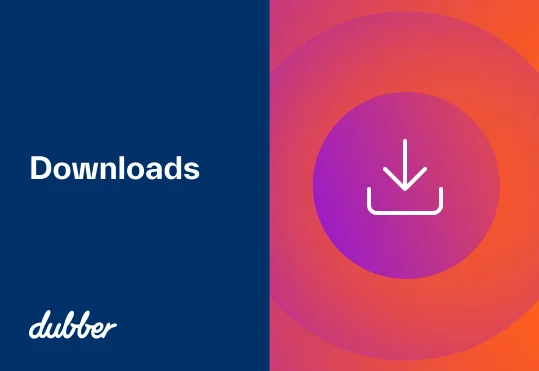
Dubber Successfully Completes $6.3m Capital Raising

This post is part of a series on Big Data and Big Voice:
- Big Data – What is it?
- How Big Data will Change Contact Centres Forever
- Big Voice – a Case Study on Tackling Autism
The power of Big Data, specifically in contact centres, has been examined in the previous posts in this series. This post focuses on the potential of Big Voice – the result of managing Big Data through voice analytics and Unified Communications solutions. Big Voice can use intelligent diagnostic solutions to effectively manage Big Data and increase the value of business communications for all companies.
Big Voice is a new and largely unexplored territory of data which, if utilised by businesses, can enable them to provide a new range of services and increase their appeal to customers. Amazon Echo and other rival products are among the first glimpses into the potential of Big Voice that has been integrated into everyday life. Amazon Echo is a voice assistant and speaker system that was highly successful in the US and has only recently become successful in the UK, after a 2 year process of analysing and integrating the British accent into the solution. The business value of Big Voice is extensive, and yet it currently remains largely untapped. One of the many capabilities of Big Voice is an ability to analyse the sentiment of a speaker, which can be used by companies to provide assistance in employing adults with certain disabilities, specifically autism.
According to the National Autistic Society, there are around 700,000 people with autism in the UK alone and shockingly, around 85% of these are unemployed. Employing people with autism is obviously important for their well being, but is actually also beneficial to a company; adults with autism commonly make excellent employees, and a national survey of consumer attitudes found that 87% of Americans would prefer to give their business to a company that hires adults with disabilities. Additional surveys have found that employees with disabilities have excellent attendance records, and are just as productive as their peers.
“The idea that people who formally have a disability can produce and sometimes even outperform non-disabled people in the workspace is quite a disruptive thought for employers,”
– Thorkil Sonne, founder of Specialisterne
Infographic from graphs.net
However, autistic men and women often struggle to find employment and when they do find a role they often struggle with the social aspect of working in an office. The key difficulties that employers often find with autistic employees are social communication and interaction, lack of understanding from peers, and sensory issues. Employers must bare these in mind, but advances in Big Data are providing an increasing number of innovative solutions to tackle these difficulties.
Thomas Madar is an example. When employed in a role, he struggled with the social aspects of a working environment, and was often dismissed as having poor communication. When searching for employment, he struggled in interviews and found it difficult to convey himself as a likeable person who could fit perfectly into a team. Eventually he found Specialisterne, a company who specialise in helping those with autism to find a job by matching them to a role where skills such as attention to detail, that are characteristic of the autism spectrum, are valued. Through them, Thomas Madar found a role that suited him.
Specialisterne’s solution helps individuals to secure a suitable job, however it does not take any steps to make the actual employment easier for either the employee or the employer. This is where Big Data, voice analytics and UC solutions come in: Big Voice. Utilising Big Voice, voice analytics solutions can monitor the stress levels and emotions of an autistic employee by deducing their mood. This is done by analysing the speed of speech, tone of voice, vocabulary and more, in phone communications.
With the advances in voice analytics and intelligence solutions, the content of calls are becoming an increasingly valuable business asset. Now solutions can analyse not just what was said but how it was said. When combined with UC solutions, the emotions of autistic employees can be potentially monitored by an AI and the analysis can be saved and shared with employers, all through a single business communication solution. Autistic employees would be able to work from home, or in any environment they are comfortable in, and still take part in conferences and meetings via VoIP calls. Analysis of their emotions could be conducted during the conferences, and if at any point analysis indicates that the employee is becoming stressed, the employer can be notified and deal with the situation accordingly.
Dubber’s Sentiment is an innovative voice intelligence solution that is able to analyse mood through a long list of metrics. Sentiment operates like a Shazam for human emotions, and could therefore be used to aid employers with managing autism, by monitoring emotional responses it will hypothetically be able to ensure that the employees are happy and comfortable in their business communications at all times. This intelligent analysis would be offered as part of a UC and call recording package, streamlining business communications, Big Voice and call recording into one single solution, ultimately opening up a myriad of applications and benefits for employers. Dubber’s Sentiment could potentially assist individuals with autism in finding and striving in their employment, which increases their quality of life and ensures they are given similar opportunities to everyone else.

This post is part of a series on Big Data:
- Big Data – What Does Big Data Mean for Telcos?
- How Big Data will Change Contact Centres Forever
- Big Voice – a Case Study on Tackling Autism
As internet use increases each year, the volume of data created every year also significantly increases. The rate of data creation has actually increased so much that 90% of data in the world today was created in the last two years alone.
Contact centres are among the companies at the front line of the big data phenomenon, and so they must develop methods to manage the data volumes they are inundated with every day, whilst maintaining high standards of customer service. To be truly successful, call centres in the modern age must figure out how to not only manage big data, but to analyse it and gain useful business insights. Using call recording and voice analytics solutions, call centres can extract useful data from every customer call, thus maximising the value of all customer – agent communication.
The importance of customer service to a call centre speaks for itself, but is highlighted by these statistics:
- 60% of customers prefer to pay extra for a better customer experience
- 86% of customers have left a company’s service because of a bad experience
- Resolving disputes is more important than guaranteeing no mistakes in the first place, as 56-70% of customers will remain with a service if their complaint is adequately resolved
For call centres, as companies whose customer service is entirely presented over the telephone, the need to monitor, manage and enhance their customer service is indisputable. This is where Big Voice comes in.
Infographic from Business2Community
A significant advance for call centres is the progression of Natural Language Processing (NLP) technologies, which have increased the ability of technology to understand unstructured data, such as voice recordings. Call centres can now gain important data every time a customer call is recorded. Combined with call analytics tools, these big data sets can gain valuable insights into customer interactions. These are the ways big data can revolutionise call centres:
- Speech analysis – NLP is not exactly new – it has long been used by contact centres to prompt callers for information to direct their call, although these are not known for being particularly accurate! Now however, with the progression of NLP accuracy has improved and systems can interpret and correctly direct calls from whole sentences, such as “I have a strange charge on my bill that I would like to discuss.”
- In depth speech analysis – NLP systems can now interpret not only what you say, but the way it was said. Speech analysis can examine tone of voice, vocabulary, mood and more to deduce the emotions, age, gender and requirements of a caller.
- Training – Speech analysis can be used to identify gaps in an agent’s knowledge, the types of calls they are best at handling, and can then provide prompts.
- Predictive analysis – mood analytics can detect a caller’s emotions and deduce when they are on the verge of frustration, and advise the agent accordingly. Mood analytics is also capable of lie detecting.
- Social media – Combining big data with social media can provide companies with an insight into current trends or problems that may affect their call volumes, and prepare accordingly.
- HR – companies can put applicants through an automated application process and use data analytics to find the best person for the job.
With the advances in NLP and analytics solutions, call centres are finally able to convert their recorded data into useful information, from which they can gain valuable business insights. The true potential of big data lies in its correct management. For call centres, combining big data with recent developments in analytical technology will begin to turn big data from just a large volume of data into valuable understanding of customer interactions. Ultimately, correct management and analysis of big data is the key to achieving excellent customer service, and improving the success of a call centre.

This post is part of a three-part series on Big Data:
- What does Big Data mean for Telcos?
- How Big Data will Change Contact Centres Forever
- Big Voice – a Case Study on Tackling Autism
Big Data is a subject currently receiving substantial attention within the communications and technology sectors. With its potential role in the development of the Internet of Things and smart cities, two of the most talked about topics in the industry, the buzz is not surprising. But what actually is Big Data, and what does it mean for technology? Most importantly, what role will it play as technology drives us towards the ‘Fourth Industrial Revolution’? Here, we strip Big Data down to the basics and explore its potential.
As is always the case with industry trends and buzzwords, ‘Big Data’ is a very vague term, often utilised to aid sales without honouring the true meaning. Put simply, it is exactly what it says on the tin – large volumes of data, or more specifically, the large volumes of data that flood businesses on a daily basis.
But what does this actually mean? Big Data cannot be simplified by defining it as large volumes of data; the true value lies in what is done with the data, and what value businesses can draw from it. Properly used, Big Data can be a gold mine of business insights. However, the volume of data that is collected every day is enormous, and to be able to discern any insight from it, appropriate management strategies are a necessity.
Infographic from Business2Community
The concept of Big Data first gained attention in the early 2000’s, when industry analyst Doug Laney defined Big Data in terms of the three V’s – a definition that is still in use today:
- Volume – large amounts of data are collected daily from a variety of sources, all of which must be processed
- Velocity – data streams flow into businesses at incredibly high speeds that must be matched in their processing.
- Variety – data is collected in a wide range of formats, including structured – numeric data in databases, and unstructured – email, video, financial transactions and more.
In today’s increasingly digital world, at the beginnings of the ‘Fourth Industrial Revolution’, the volume of data that is created and stored worldwide on a daily basis is inconceivable. Business data has increased in volume, velocity and variety, and it is this increase that is the true meaning and relevance of Big Data.
Image from Soft Computing and Intelligent Information Systems
Big Data is capable of providing indispensable business insights as long as it is efficiently managed. Smart analysis of the data can assist enterprises in making businesses decisions that could ultimately result in cost reductions, time reductions, new and optimised product development and streamlined business processes. Furthering its potential are companies who are combining Big Data with high-tech analytical solutions, to discover information that is even more powerful and insightful. The use cases are limitless, including:
- Diagnosing the cause of system failures quickly and efficiently
- Generating recommendations at the point of sale, based on the customer’s buying habits
- Detecting fraudulent behaviour fast and resolving the issue before your business is affected
- Many more
An example of a company that is a Big Data success story is Uber. Monitoring use of its application by both drivers and users, Uber has mapped a real-time logistics flow of human transportation. This use of Big Data has enabled Uber to enter new markets and continually regenerate the company and their revenue streams. Uber are the perfect example of how the potential lies not in the volume of data, but in its management, and they used it for a very simple purpose – to dispatch cars to the right users. With this simple yet powerful use of Big Data, Uber have grown into a company that is currently dominating the consumer transportation sector.
The final question is how to build solutions that enable enterprise users to utilise Big Data and maximise business productivity. Maximising its potential could open telcos up to new revenue streams, and provide them a gateway to smart cities and the Internet of Things, which will further their growth trajectory infinitely.
Only 0.5% of business data is currently being analysed; providing significant opportunity for telcos to deploy Big Data solutions that assist enterprises in business decisions. Telcos need only tap into the potential to gain access to unlimited numbers of new clients and profit opportunities. Even more significant for telcos is Big Voice, a solution that provides deep insights into customer communications, going beyond simple statistics. Big Voice enables telcos to deduce a customer’s communication pattern by analysing their call times, locations and more. This information helps telcos to gain an understanding of individual customer activity, and to then cater solutions to fit these requirements. Organisations can also use recorded data to analyse the sentiment of their customers and internal communications and keep a catalogue of smart, searchable call recordings. Ultimately, Big Voice turns audio and call recordings into rich business assets, enabling companies to streamline and improve business processes, ultimately increasing the likelihood of retaining customers.
The role that telcos must play in Big Data management, what it will mean for call centres and similar businesses, and the future of communications once Big Data and analytics solutions are partnered, will be addressed in the second post in the series.
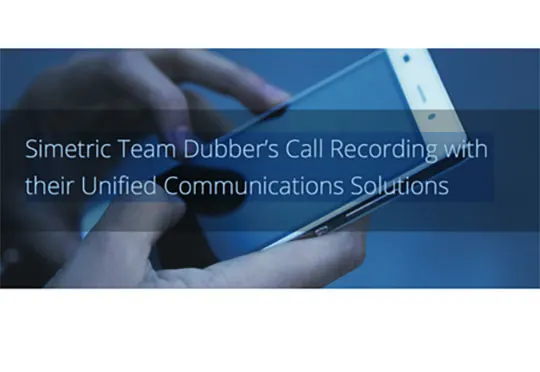
Simetric aim to converge service providers and provide users with a unified solution for their individual correspondence. They have utilised multiple mobile networks across the UK to develop a standardised network, enabling users to bene t from a single telephone number for both their mobile and fixed phones. To expand their UC solutions for business customers, Simetric chose Dubber.
“The Dubber platform and SaaS business model perfectly complement Simetric’s technologies. Simetric and Dubber share the same desire to continually work to develop and engineer innovative new products that revolutionise the telecoms industry. Through the partnership, we can now deliver a seamless integration of uni ed communications and call recording into both fixed and mobile services.
Dubber’s Playback service changes the face of mobile telephony in our view. It is the type of feature that highlights the value of our UC strategy and opens up significant opportunities to engage with all users in every market segment.”
John Murray, Director of Simetric Telecom (Tango Networks)
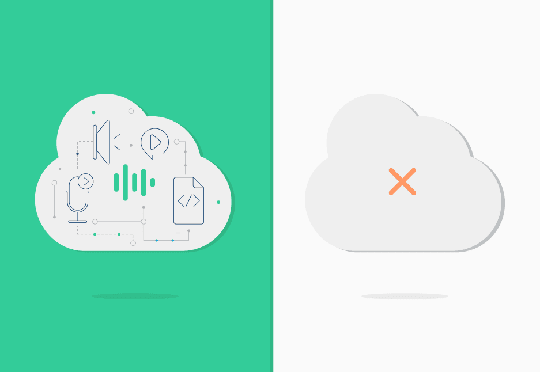
“The cloud is a principal, not a software version”
– GovSense
The internet is full of companies labelling themselves as a “cloud based solution”. Unfortunately, not all of these are true cloud products, but what have been nicknamed ‘fake’ cloud products. There are two forms of cloud based platforms from which companies deploy their technology solutions: hosted cloud platforms and true or native cloud platforms. Many companies who claim to be cloud based are often actually operating from a hosted cloud platform, which is both less efficient and less functional than true cloud based offerings. In fact, hosted cloud solutions sometimes simply add to the plethora of problems that accompany on-premise solutions.
A hosted cloud solution is a technology service offered by providers that host physical servers which actually defer the service elsewhere. Hardware is still required, which means that the solutions are not truly cloud based solutions, and are unable to be scalable – a feature that is one of the key attractions of native cloud solutions. Hosted cloud solutions are not built, maintained or managed by the provider themselves, as they are usually off-the-shelf products. Instead, they shift accountability to others, which causes the usual complications of third party involvement. Amongst other things, this creates a barrier between users and their data.

A true cloud solution is operated entirely from a native cloud platform, eliminating any need for hardware. Once hardware requirements are eliminated, the associated restraints of using hardware are simply eliminated as well. End users can benefit from efficient solutions without the need for any hardware, and the associated headaches. True cloud solutions can therefore provide best in the industry services. The list of benefits of true cloud platforms is extensive, and includes:
- Seamless integration into any application
- Unlimited scalability
- Open APIs – giving users the flexibility to adapt solutions to fit their requirements
- No tedious upgrade processes
- Speed and ease of use
- Greater value for money
- Highly secure
- Highly accessible
- Many others
Undoubtedly, the most significant benefit of true cloud platforms is their capacity for unlimited scalability, which enables end users to scale the processing power and storage capacity of solutions to fit their individual requirements. True cloud solutions have been built securely to perform in a multi-tenant cloud environment.They therefore support multi-tenancy, as well as data redundancy. They are often deployed with open APIs, providing users the flexibility to adapt the solution to fit their individual requirements. This agility perfectly compliments the dynamic and constantly changing demands of the modern world. In all these ways and more, true cloud solutions differ from hosted cloud solutions. Hosted cloud solutions are simply attempting to blur the lines between true and hosted platforms.
“Connecting an internal solution to the web and calling it ‘cloud’ is a bit like waterproofing a truck and calling it a submarine: it might technically fit the description, but it’s clearly not meant for that.”
The long list of applications and benefits that true cloud solutions offer simply cannot be matched by hosted cloud solutions, and so true cloud solutions are better equipped to help companies provide best in the industry solutions for their clients. The leading true cloud platforms are Amazon Web Services (AWS), the Google Cloud Platform and Microsoft Azure. Two notable examples of companies using these platforms to deploy their service include Netflix and Spotify. AWS enables Netflix to rapidly deploy data content on an enormous scale, to servers all over the world. It is AWS that enable Netflix to manage their huge user base and volume of data. Spotify use Google’s Cloud Platform to host their data centre, having opted to focus on data user queries to provide the best possible user experience. The Google Cloud Platform enables Spotify to scale their service to fit their popularity, and to answer user queries within seconds, by hosting their data centre on their scalable and secure platform.

In an increasingly tech-heavy world, a company’s reputation and ability to stand out from substantial competition is vital to its success, and providing best in industry solutions is the best way to secure a good reputation. True cloud platforms enable companies to deploy their solutions in a Software as a Service format, which guarantees unlimited scalability and global availability. Companies using hosted cloud solutions therefore have two problems. Firstly, they risk the displeasure of their customers at what could be perceived as false advertising – their products are not truly cloud based, and have none of the benefits of a true cloud based solution. Secondly, in providing none of the benefits that true cloud solutions do, they are far from being the best in industry.
Although true cloud solutions offer so many benefits, organisations must design their platform to take advantage of the built in seamless integration and elasticity, in order to realise these benefits. For this reason, Dubber built its recording platform with these true cloud features at its core, and is able to fully benefit from the AWS true cloud platform. Dubber therefore provides a call recording solution that functions as a Software as a Service and offers unlimited scalability, high security, an open API, rapid deployment and no upfront costs. As other true cloud solutions have done for their industries, Dubber has revolutionised the telephony industry and opened up a myriad of benefits for users: making call recording highly relevant and useful for everyone.

Dubber Selected by Telenor Sverige for Cloud Call Recording

